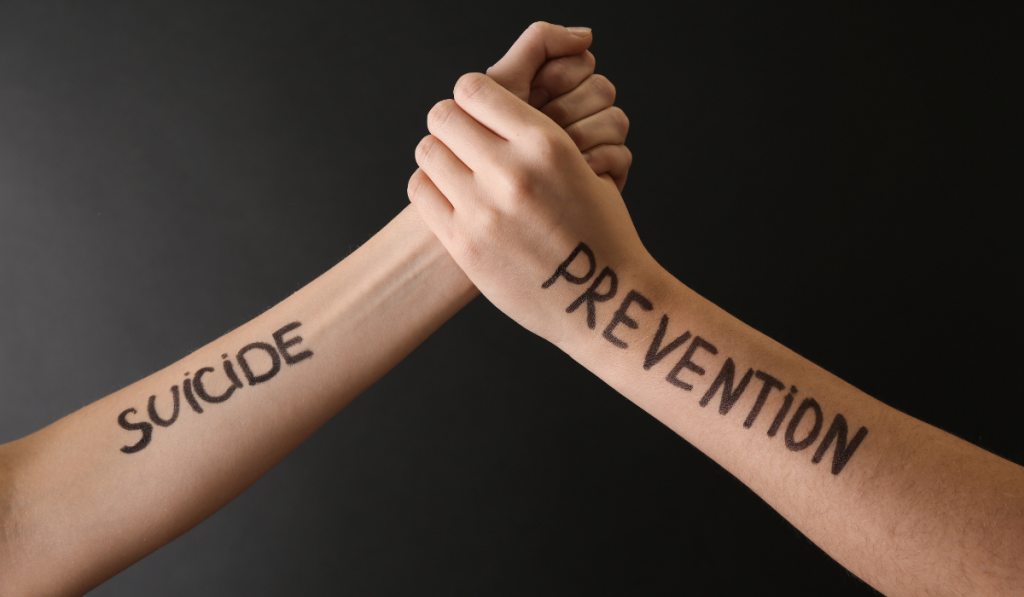
The Impact of School on Your Child’s Mental Health: More Than Just Grades
August 25, 2025
Practical Mental Health Tips to Use at Home Every Day
September 12, 2025
Suicide is one of the most devastating and misunderstood issues families face. When someone we love is struggling, it can feel overwhelming to know what to say, what to look for, and how to help. Understanding suicidal signs is an important first step in protecting the people closest to us. By recognizing changes in behavior, mood, and daily patterns, you may be able to intervene before it’s too late.
In this article, we’ll discuss what suicidal ideation is, break down different warning signs to look out for, and share practical advice on how to help someone who is suicidal.
What is Suicidal Ideation?
Suicidal ideation is the medical term used to describe suicidal thoughts. These thoughts can range from passing ideas about death (“I wish I could just disappear”) to more specific, detailed planning about ending one’s life.
To clarify: what is a suicidal thought? It can be a fleeting or recurring idea about dying, sometimes triggered by stress, hopelessness, or mental illness. Not every person with suicidal ideation will act on it, but all suicidal thoughts should be taken seriously. Even casual comments or dark jokes about death may reflect deep internal struggles.
Suicidal Signs to Watch For
Not all suicidal behaviors look the same, but there are common suicidal signs you can learn to recognize. Some are subtle, while others indicate an urgent crisis.
1. Talking About Death or Suicide
- Saying things like, “I can’t go on,” “I wish I wasn’t here,” or “Everyone would be better off without me.”
- Making repeated jokes about dying.
- Expressing feelings of hopelessness or worthlessness.
Why it matters: Verbalizing suicidal thoughts is one of the most direct indicators that someone may be struggling. If you hear these statements, take them seriously—don’t assume it’s just “attention-seeking.”
2. Withdrawing From Friends, Family, or Activities
- They pull away from social gatherings or isolate themselves in their room.
- Losing interest in hobbies, work, or passions.
Why it matters: Isolation often worsens mental health and can signal that the person doesn’t feel connected to others. This behavior can be especially concerning if it happens suddenly.
3. Sudden Mood or Behavior Changes
- Extreme irritability, anger, or aggression.
- A calm or “relieved” mood after a long period of depression, which may mean the person has decided on a plan.
- Noticeable changes in sleeping or eating habits.
Why it matters: A sudden shift in mood—especially going from despair to calmness—may seem positive, but it could indicate the person has resolved to end their life.
4. Risk-Taking Behaviors
- Reckless driving, unsafe sexual activity, or increased substance use.
- Giving away personal possessions.
- Saying goodbye in unusual or final ways.
Why it matters: These actions can be indirect expressions of suicidal thoughts or preparation for an attempt.
5. Access to Means
- Seeking out ways to harm themselves, such as researching methods online.
- Purchasing items like firearms, medications, or other dangerous tools.
Why it matters: This is one of the most serious warning signs. If you know your loved one is actively gathering means to hurt themselves, it is an immediate red flag and requires urgent help.
Which Signs Are Most Serious?
While all of the above behaviors are concerning, certain signs suggest an emergency:
- Talking openly about wanting to die.
- Making a specific plan or acquiring means.
- Saying goodbyes or putting affairs in order.
If you notice these urgent signs, do not wait. Call emergency services (911 in the U.S.) or take your loved one to the nearest emergency room.
How to Help Someone Who is Suicidal
Knowing how to help someone who is suicidal can feel overwhelming, but your support can make a life-saving difference. Here are the steps to take:
- Start the Conversation
- Use compassionate, non-judgmental language.
- Ask directly: “Are you having suicidal thoughts?” Research shows asking does not increase risk—it opens the door for honest conversation.
- Listen Without Judgment
- Give them space to talk about their feelings.
- Avoid minimizing their pain (“You’ll be fine” or “Others have it worse”).
- Encourage Professional Help
- Suggest contacting a therapist, doctor, or crisis hotline.
- Offer to help them research resources or accompany them to an appointment.
- Remove Immediate Dangers
- If possible, reduce access to harmful means such as medications, firearms, or sharp objects.
- Stay Connected
- Check in regularly through calls, texts, or visits.
- Remind them they are not alone and that their life has value.
Resources for Immediate Support
If your loved one is showing signs of suicidal ideation or expressing suicidal thoughts, reach out for help right away. In the U.S., you can dial 988, the Suicide & Crisis Lifeline, for 24/7 confidential support
Get Help Today
Recognizing suicidal signs in a loved one can be difficult, but it’s important to remember that intervention can save lives. Understanding what suicidal ideation is and knowing how to help someone who is suicidal allows you to take meaningful steps in supporting your loved one through their darkest moments.
Your compassion, presence, and action could be the reason someone chooses to keep going. Never underestimate the power of reaching out and showing you care.
_________________________________________________________________________________
Looking for treatment for an eating disorder, anxiety, depression, trauma, or postpartum mood disorder?
Evolve Counseling Services is a specialized team of Licensed Therapists providing treatment in Paoli.



